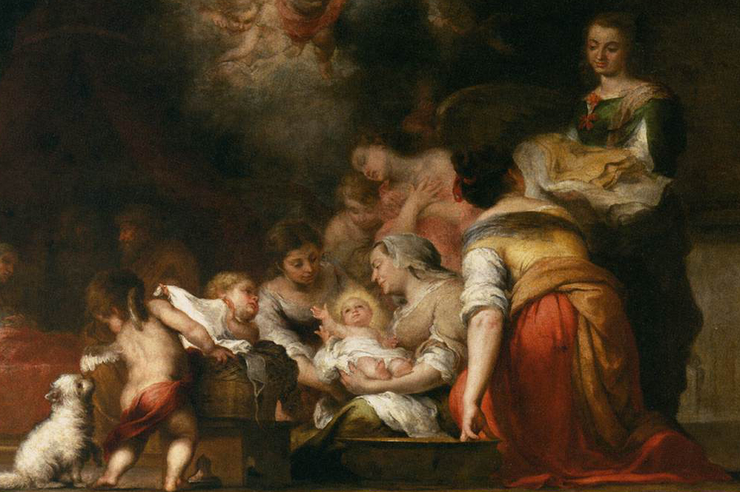St. Therese had to wait to make her profession. As she waited for this day, she told God she would wait as long as he desired. Until that day she resolved to carefully “make a beautiful dress enriched with priceless stones”. Therese began applying herself to practicing little virtues by doing small penances that especially mortified her self-love. She was not practicing these virtues alone. St. Therese stated that the Blessed Virgin, “was helping me prepare the dress of my soul; as soon as this dress was completed all the obstacles went away.”
The Bishop finally gave his permission and the community voted in favor of receiving St. Therese. The date set was September 8, 1890, the Feast of the Nativity of Mary. St. Therese writes of this occasion, “What a beautiful feast on which to become the spouse of Jesus! It was the little Blessed Virgin, one day old, who was presenting her little flower to the little Jesus. Everything was little that day except for the graces and peace I received.” (Story of a Soul, Ch 7)

St. Therese was set on mortifying her self-love and practicing little virtues and said that the Blessed Virgin Mary was helping her do this. The Blessed Mother also teaches us to live these hidden virtues and under God’s shadow. Her birth was unnoticed, yet without her, the greatest mystery of our faith could not have taken place. It is because of Mary that the Incarnation of the Son of God and Redemption of man was made possible. Her birth is like the dawn projecting new light over the new day. Yet her birth is unknown, unnoticed and not even mentioned in the scriptures. She remains hidden to the world except for the eyes of God, who sees her in the silence and obscurity of her life.
Today’s feast invites us to imitate this hidden life of Mary and even that of St. Therese, who was enclosed in the cloister and unknown to all expect for God. A hidden life that focuses on the interior by quietly practicing virtue and doing little penances keeping in check the selfish ego. Putting to death the need to be noticed, seeking praise, or making excuses for failures, these can be done under the shadow of God, just like Mary. St. Therese knew this and put this ideal into practice in the convent. We too can do this in the ordinary circumstance of our days under the watchful patronage of the Blessed Mother, whose birth we celebrate today.




